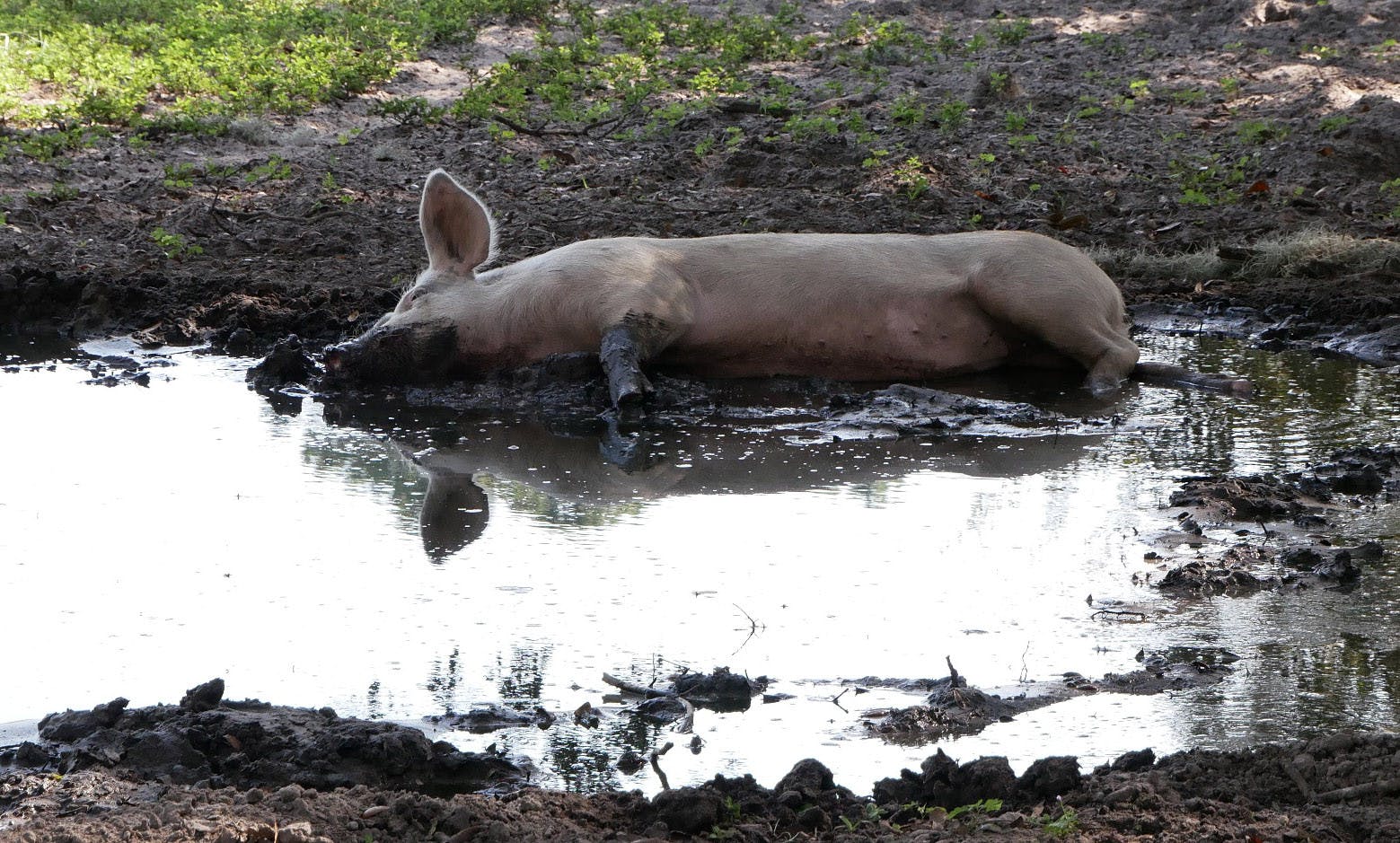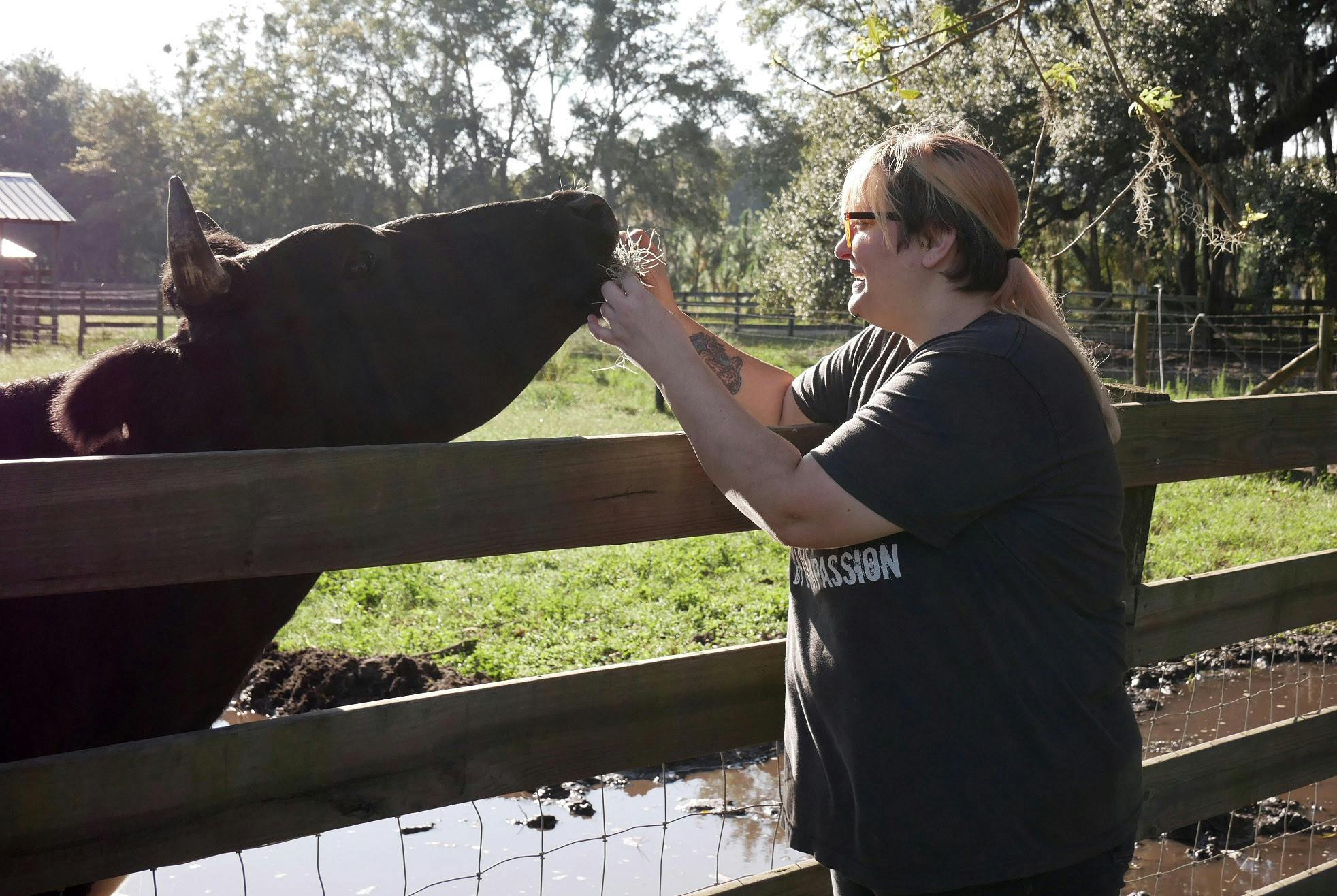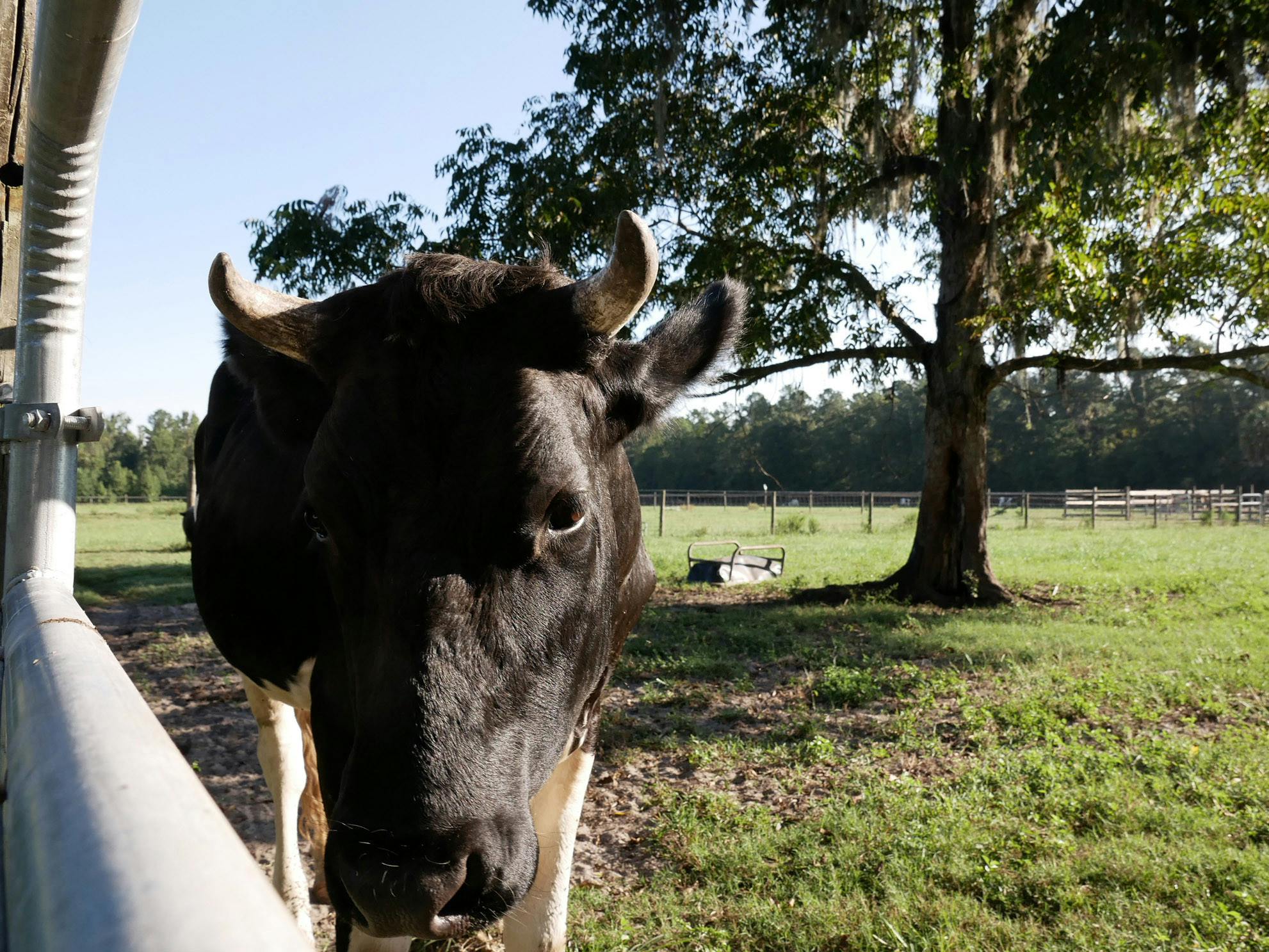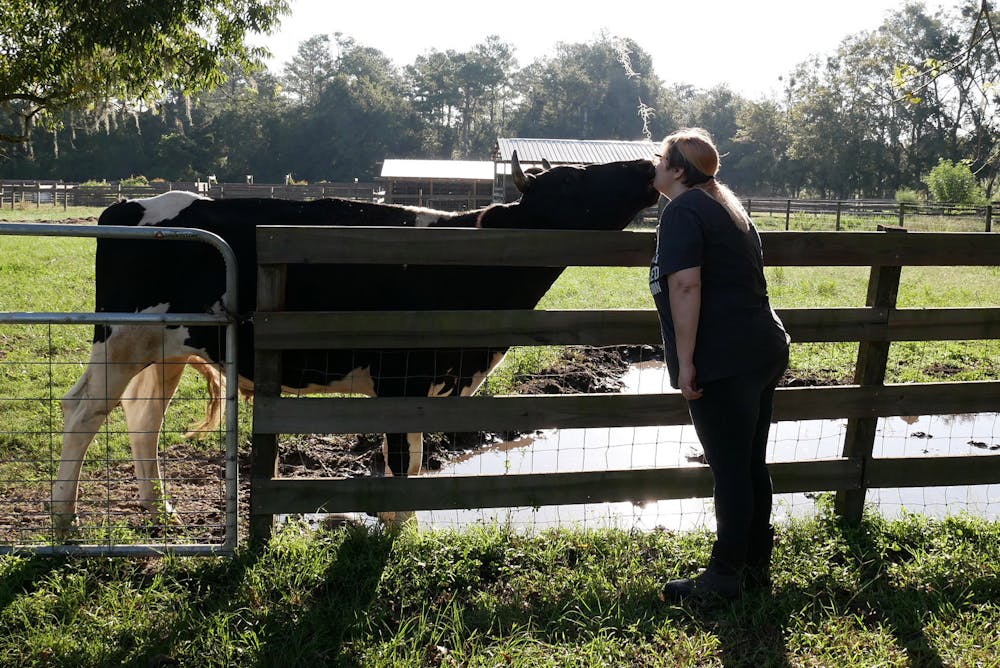Larry Williams has spent most of his life in and out of a cow pen.
After working 52 years in the feed industry, the 74-year-old retired cattle rancher splits his time between his 50 beef cows and his duties as the president of the Alachua County Cattlemen’s Association.
“It’s how I made my living all this time,” he said. “I’ve got great-grandkids getting in [animal agriculture].”
For many, agriculture and animal farming is a way of life. Supporters of animal agriculture claim it provides a wealth of jobs and economic benefits. Yet, a growing number of activists and scientists say the local meat production industry harms the environment and subjects animals to severe abuse.

Agriculture yields economic and community prosperity
Florida’s animal agriculture industry was valued at over $1.4 billion in 2021. There are more than 40,000 cows, most of which are raised to produce meat or dairy products, in Alachua County alone.
Agriculture is Florida’s biggest economic driver through an economic recession or a pandemic, Florida Commissioner of Agriculture Wilton Simpson said.
“During the pandemic, farmers went to work every day,” Simpson said.
In February, Alachua County proposed a small-scale meat processing facility to be built in Newberry, sparking a heated debate between local animal welfare activists and agricultural workers.
The county commission ended up rejecting the $2.5 million plan in August after Gov. Ron DeSantis vetoed the $1.75 million that would have been set aside for the facility.
Williams was in favor of the proposed Newberry plant, having spoken on behalf of local farmers at multiple county commission meetings before the plan's failure. He said he hopes a similar proposal for the county finds success in the future.
“It would’ve given a lot of small people a lot of help,” he said.

Ranchers raising cows for meat currently have to ship them west to states like Colorado or Texas for processing before the meat is shipped back to Florida to be sold.
The Newberry facility would’ve cut out that extra step, Williams said, making it more convenient for farmers to sell their products locally. Alachua County residents could then show direct support to local farmers rather than purchasing meat from large commercial grocery stores.
Anna Prizzia, an Alachua County Commissioner, considers herself on the same side as animal welfare advocates while also having supported the Newberry facility.
The plant would have improved the ethical standards of the local animal agriculture industry by enhancing quality control, providing safer working conditions for employees, and reducing waste, Prizzia said.
“This is one of the key things that I think we need for local food infrastructure in order to support our small ranchers, protect our rural farmlands and create a resilient local food system,” she said.
Animal agriculture is also a source of community and education for Alachua County’s youth, 4-H State Specialized Agent Christopher DeCubellis said. The youth development organization, 4-H, helps K-12 students engage with projects involving farm animals.
One of the organization's initiatives, known as market projects, requires students to care for an animal, keep track of how much they spend and do community service.
“We hope that the kids will be big-picture thinkers and look for ways to make their community and their world better,” he said.
Market projects allow kids to raise animals such as cows and pigs knowing they’ll be sold for human consumption. Students who want to be involved in market projects have to go through ethics training at least once every three years, DeCubellis said.
The 4-H program shows youth how to raise animals in an ethical, respectful way, and can spark their interest in a future career in agriculture, he added.

Animal cruelty and environmental costs
However, as climate change becomes an increasing concern for many, some experts and advocates worry about the animal agriculture industry’s contribution to the global issue.
Livestock produce 14.5% of our global emissions, with the majority coming from cows. One cow will produce 220 pounds of methane per year through belching. While carbon dioxide is a well-known greenhouse gas, methane is 28 times more potent.
There are various ways the animal agriculture industry negatively impacts the environment, like through excess water and land usage, 25-year-old UF ecology graduate student Rock Aboujaoude said.
“A lot of people just think ‘It’s just methane, right?’ Well, no. It’s also the land. It’s also the water. It’s also the fertilizers,” he said.
It takes 4.5 gallons of water to produce one gallon of milk. For a pound of beef, that number skyrockets to 1,800 gallons.
Additionally, pollution from animal manure can become a huge problem for the environment and local communities, PETA Science Education Strategist Sally Sanders said.
Livestock produce 40 times more feces than humans. Animal waste at meat processing plants is often improperly managed, Sanders said, and can end up polluting freshwater supplies.
There’s overwhelming evidence that the animal agriculture industry leads to environmental degradation, she added.
Sanders, who is vegan, said that human consumption of livestock is rooted in a concept called speciesism. The notion that certain animals like dogs are pets, but other animals like cows are food is a cultural bias that we can undo, she said.
“This concept of speciesism takes time for people to recognize it as a genuine concern,” Sanders said. “We just want others to recognize that animals are not ours to do with as we please.”
At Critter Creek Farm Sanctuary, Sheena Drost scratches Lionel the cow behind his ears. Lionel was rescued by the sanctuary from a small, family-owned dairy farm, Drost said. At dairy farms, male cows are slaughtered at birth as they don’t produce milk.
Drost, the secretary and office manager for Critter Creek, has been with the sanctuary since 2019. Critter Creek has 222 animals, 180 of which are cows, making it the largest bovine sanctuary in the country. Some of their other animals include water buffalo, bison, pigs and horses.
The majority of the sanctuary’s animals, Drost said, are rescued from cruelty and neglect. She pointed at a pig named Noodle, whose tail ends in a stump. At large industrial farms, the tails of pigs are cut off at birth.
Critter Creek opposed the Newberry facility due to its stance against animal cruelty and the impact the plant would have on public health. The pollution and runoff from the facility could contaminate the local environment, as well as cause health complications for humans, she said.
Meat processing facilities often attract disease vectors like flies and rats, she added.
“It’s such a domino effect, so [the proposed facility] was canceled, thankfully,” she said.
Critter Creek hosts a “farmer’s moo-ket” every month with vegan food trucks, small businesses and opportunities for people to interact with resident animals. The goal is to create a place where locals can try foods they normally wouldn’t and bring awareness to animal cruelty, Drost said.
“They’re just like our pets at home,” Drost said. “They feel pain. They form bonds. They have families they love.”
Contact Kylie Williams at kyliewilliams@alligator.org. Follow her on Twitter @KylieWilliams99
Kylie Williams is the Fall 2024 Enterprise Editor and a junior journalism major. Previously, she worked for the enterprise desk as the environment reporter. In her free time, she can be found reading, baking or watching reality TV with her cat.






